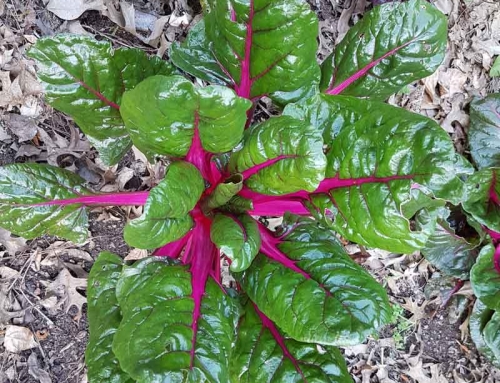Wired and Tired: How Stress Impacts the Immune Response
We are all familiar with the concept of “Stress” and have all suffered some kind of stressor in our day-to-day lives, whether it be running late for work when the old man in front of you won’t go the speed limit, being let go from your job after 20 years of loyal service, your kids fighting over the I-pad and wailing at you that “it’s not fair, it’s my turn”, or standing up in front of your peers to do an oral speech, your knees knocking and an internal voice screaming ‘RUN! RUN!’. Let’s be honest, in our busy and fast-paced modern day lives stress is very much the norm.
Now, don’t get me wrong, stress isn’t always such a bad thing. During the Palaeolithic period when a Pterodactyl was swooping down on us, this fight-and-flight response was essential to our very survival. In fact, since the dawn of time, stressors have played a very important role in the evolution of all living organisms, helping us to adapt and evolve to the pressures of the environment such as predation and natural disasters. The physiological changes of acute stress are an adaptive energy required for growth and strengthening to increase our evolutionary fitness and have even been shown to enhance the immune system capacity to expediate wound healing and prevent infections from taking hold.
However, chronic and mismanaged stress is another story entirely and can have very deleterious impacts on our health and wellbeing. Laying awake at night with looping, repetitive and negative thoughts of worry that ‘you need to call you mum because her health isn’t well and the kids need new shoes and did you remember to turn the stove off?’, overdoing the marathon training and winding up on bed-rest for a week because your body doesn’t have the reserves to recover, or feeling like the world is a scary and dangerous place and you would be safer just staying in bed for the rest of your days are clear examples of unhealthy stressors. Chronic stress causes high levels of cortisol to impact the inflammatory and immune responses. Similar to stress, inflammation plays a very important role under acute situations, but can become harmful to our health under chronic conditions.
A professor of psychology at Carnegie Mellon University, Sheldon Cohen has stated that, “Stressed people’s immune cells become less sensitive to cortisol. They’re unable to regulate the inflammatory response.” (Cohen, 2004).
The field of neuro-psycho-immunology (yep – it’s a thing!) clearly demonstrates that chronic stress suppresses the immune system and makes us more susceptible to illness and disease. So, what can we do about it? Managing stress, anxiety and depression largely depends on the individual presentation and should be personalised to your needs. We all need care, compassion and support during the many life challenges that present to us and therefore finding the right healthcare practitioner to help you manage your stress is an essential step in taking charge of your physiological and psychological health.
A healthcare practitioner can help to hold you accountable to your self-care disciplines and guide your treatment, whether it be GABA-inducing herbs and activities such as passionflower, lemonbalm and yoga, serotonin and melatonin supporting nutrients such as magnesium and zinc, or changing the very neuroplasticity of your brain with regular mindfulness and meditation techniques. Finding the right fit for you is essential in managing your stress for prolonged health and vitality.
Here are some helpful ‘Zen-activities’ to help you get started:
- Gentle exercise of even 20-30 minutes walk a day helps to change the scenery, allowing you to take a break from your frustrating task and clear your mind and provides a good boost of feel-good endorphins.
- Focus on your breathing. Breathing techniques slow your fight-and-flight response. Simply observing your breath can calm the body and mind within minutes.
- Hug someone you love! Hugging releases the feel-good hormone oxytocin which reduces stress hormones and improves your sense of relaxation and happiness so that you both feel good.
- Enjoy a cuppa. Inhaling the aromas of your cup of tea reduces your stress response. What’s more, research shows that 3 cups of chamomile tea a day can be therapeutically beneficial in managing anxiety.
- Daily yoga practices of as little as 15 minutes helps to slow your breathing and increase your natural production of GABA – the muscle-relaxing, sliding-into-the-bubble-bath hormone that medications like Valium induce.
- Practice gratitude ~ daily gratitude journaling helps us to re-wire our brains to focus on the positive aspects in our lives rather than the negative.
- Release your creativity! Drawing, painting, sculpting, mandala colouring-in or making finger puppets with the kids – art in all forms can be meditative, helping to focus the mind and release some pent-up emotions.
- Eat a balanced, wholefood diet. Reaching for those high-fat, high-carb, high-sugar food-groups may provide us with a temporary endorphin hit, but such emotional eating is unsustainable, and typically causes us to feel more stressed and anxious when our blood sugar crashes. Wholefoods provide sustainable energy and nutrients that help to regulate our mood and energy.
- Make more time for fun! What excites you? What brings joy to your life? Whether it be sports, crafts, learning an instrument, reading a book in bed, or soaking up the sun at the beach, prioritising some down-time can be the best thing you can do for your stress levels, helping you to rest, recuperate and recharge so that you can live your best life.
Written by Sophia Leighton.
Resources:
https://www.rn.com/featured-stories/stress-inflammation-immunity/
https://www.ncbi.nlm.nih.gov/pmc/articles/PMC1361287/







Leave A Comment